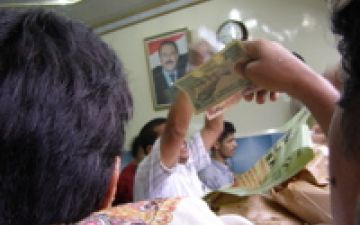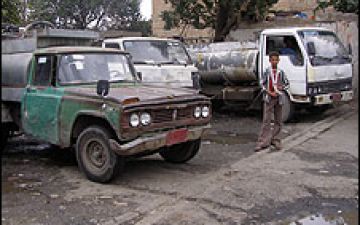New Model Army
The al Aimmah bridge has been closed since 2005, and the Iraqi army guards both sides to prevent anyone crossing from Khadamiya to Adhamiya – two Baghdad neighbourhoods that are essentially polar opposites. Khadamiya is named for the shrine of the seventh Shiite imam, Musa al Khadim, while Adhamiya is home to the Abu Hanifa Mosque, where the 8th century Sunni Imam Abu Hanifa an Numan is buried. On August 31, 2005, nearly a thousand Shiite pilgrims headed to Khadamiya were killed in a panicked stampede on the bridge after shouts went out warning of an imminent suicide attack.




